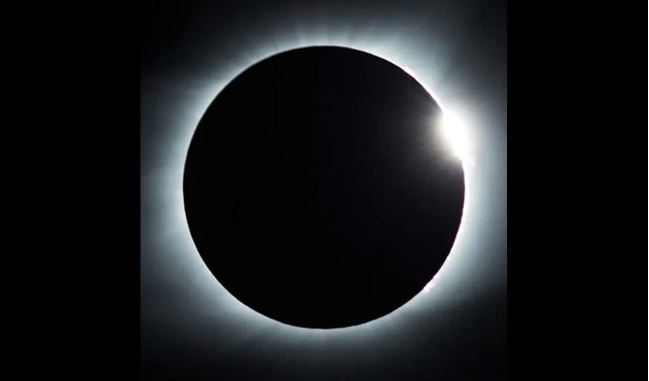
Scientists Describe How Animals and Nature Would React to 2024 Total Solar Eclipse.

On April 8, 2024, the world eagerly awaits a rare celestial spectacle of a total solar eclipse, and scientists are gearing up to study its fascinating effects on the natural world.
This “Great North American Eclipse” is expected to sweep across several countries, including the United States, Mexico, and Canada, offering researchers a unique opportunity to observe how plants and animals respond to temporary darkness.
According to experts, the eclipse, though brief, is expected to have a profound impact on wildlife behavior.
Angela Speck, a professor of physics and astronomy at the University of Texas at San Antonio, explains that plants and animals will begin to react as the light dims in the lead-up to totality.
Birds are anticipated to start flocking approximately 20 minutes before totality, while farm animals like cows and chickens may exhibit behavior indicative of nightfall, such as returning to their barns.
During the brief period of totality, bees are predicted to stop buzzing and retreat to their hives, only to appear disoriented when sunlight re-emerges. This phenomenon was observed in a study published in the Annals of Entomological Society of America following the 2017 eclipse.
Brent Pease, an assistant professor at South Illinois University’s School of Forestry and Horticulture, highlights the transitional phase post-totality, suggesting potential confusion among animals. Crepuscular nocturnal insects like crickets may vocalize as light diminishes, while spiders may engage in web maintenance, behaviors typically reserved for nighttime.
Recent studies have unveiled intriguing insights into the eclipse’s impact on various species. Galapagos tortoises, typically slow and lethargic, display heightened mating behaviors during the eclipse, as observed in a study conducted in 2020.
Additionally, some plants exhibit the intriguing behavior of closing up during totality, as revealed in a study from the 2017 eclipse.
The upcoming event represents a unique opportunity to deepen our understanding of nature’s responses to celestial phenomena.





Leave a Reply